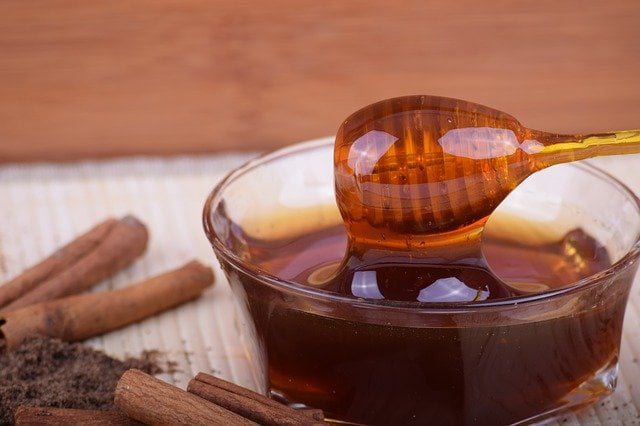Healthful Wonders is reader-supported. Some products displayed may earn us a commission. Learn more
Cold and cough in babies or infants are mostly viral infections called the common cold. It is often rarely serious and lasts for about 7-10 days.
Babies are vulnerable to catching a common cold because they are often around older children and their immunity to infections is still developing. Your baby can catch eight or more colds in their first year alone.
Causes of cold in babies
The common cold is mostly caused by viruses called “Rhinoviruses”. They enter through your baby’s mouth, eyes, or nose.
Once infected, your baby develops some form of immunity to that virus but because so many other viruses cause colds, your baby might still have several colds. Your baby can be infected with a virus by:
- Air: When someone who is sick coughs, sneezes, or talks, he or she might directly spread the virus to your baby.
- Toys: Some viruses live on surfaces for two hours or longer. Your baby may catch a virus by touching a contaminated surface, such as a toy.
- Direct contact: Someone with a cold who touches your baby’s hand can spread the cold virus to your baby, who can become infected after touching his or her eyes, nose, or mouth. Babies also catch colds from daycares.
Symptoms of baby cold
Babies start to show signs of a cold about 1 to 3 days after they’re infected. Symptoms include:
- Stuffy nose
- Runny nose; clear at first, but may thicken and turn yellow or green.
- Cough
- Sneezing
- Fever
- Irritability
- Difficulty sleeping
- Trouble nursing or taking a bottle due to nasal congestion.
- Reduced appetite
- Vomiting or diarrhea
Best 15 Nigerian or African home remedies for baby cold
These home remedies are cheap, safe, easily available, and can help your baby feel better. They are suitable for infants from zero to 24 months old.
1. Breast milk
Breast milk is excellent for babies below six months old. It soothes them, gives comfort, and nourishes them.
Ensure you breastfeed your baby regularly, as your body will develop antibodies that will help fight off the baby’s cold.
2. Infused oil massage
Another simple home remedy is to massage your baby with coconut oil infused with garlic before bedtime or after giving your baby a bath.
Alternatively, if you don’t have coconut oil, you can use palm kernel oil (“Udeaki”) infused with garlic.
Massage the oil mixture on the baby’s chest, back, feet soles, and palms. This warms up your baby and helps expel thick mucus.
To prepare, heat or microwave either of the oils for one minute, then add freshly peeled garlic cloves. Let it cool and transfer it into an airtight container. Discard after 14 days.
You can find a variety of quality coconut oil to buy online.
3.Turmeric Paste

Turmeric is a common cooking spice available in most kitchens. It has powerful healing powers and is a simple home remedy for your baby’s cold.
Mix a little turmeric with warm water to make a smooth paste, then apply this mixture to your baby’s chest, forehead, and the soles of his feet. Wash it away after a few minutes.
The heat from the turmeric will help in expelling thick mucus and clearing the baby’s nostrils.
4. Steam bath
The steam bath is an effective home remedy for colds in babies and toddlers.
Simply turn your bathroom into a steam room. To achieve this, run a hot shower, close the door, and sit inside with your child for 15 minutes before bed and again for 15 minutes in the morning.
The steam helps loosen chest and nasal congestion, making it easier for kids to cough or blow it out.
Make sure the doors are shut tightly. Close any holes or cracks with a towel.
5. Saline drops
Saline drops are very good for babies with blocked nostrils.
Most pediatricians prescribe over-the-counter nasal drops, but in case of an emergency, you can also make yours at home.
To prepare saline at home, sterilize all your equipment by boiling, then mix ½ tablespoon of salt and 8 tablespoons of boiled, cooled water in a bowl.
Keep your baby’s head slightly tilted. Then use a 2ml bulb syringe to drop the mixture into each nostril. This will loosen mucus and make it ooze out.
Dispose of homemade nasal drops after 24 hours as it is prone to bacteria growth.
You can find a variety of quality nasal saline drops to buy online.
6. Nasal aspiration
Once the steam and saline drops have done their job of loosening up mucus in your baby, use a nasal aspirator to clear out his or her sinuses.
You can also make use of a bulb syringe but if you want to do a better job, get a nasal aspirator.
Find a variety of nasal aspirators to buy here online.
7. Add moisture with a humidifier
A humidifier is a great remedy for baby and toddler cough at night, especially during dry weather.
Humidifier adds moisture to the air and keeps your child’s airways from drying out.
It will also help loosen chest and nasal congestion, enabling the baby to sleep longer.
However, remember to clean and change the water daily, as bacteria and mold grow quite quickly.
You can purchase quality cool-mist humidifiers online. Find it here.
8. Gargle with warm salty water
This home remedy is for older babies who can easily spit out the water after gargling.
To prepare, simply mix ½ teaspoon of salt with 100 ml of water, then have your child gargle the solution.
It should ease cough and throat irritation.
9. Warm Chicken soup
Chicken soup should be given to children that are eight months and above. It should be prepared with small bits of ginger, garlic, turmeric, and basil leaves.
The spices and herbs will warm up your baby and loosen up thick mucus. Make sure the soup is warm before serving.
10. Fresh citrus juice
This home remedy is for babies that are above six months of age.
Extract the juice of fresh fruits that are rich in vitamin C like oranges, lemons, tangerines, etc.
Make sure to give baby regular sips, as vitamin C helps fight germs that cause colds.
11. Honey

Honey is a delicious remedy to fight off colds and soothe the throat. It also has antibacterial properties and may help fight infection.
However, it should not be given to babies under one year as their bodies are not developed enough to digest it and it may cause infant botulism.
You can find a variety of natural honey to buy online.
12. Give lots of fluids
Ensure to keep your baby hydrated with lots of warm water, breast milk, or any other fluids.
Most babies lose their appetite for solid food when suffering from a cold and cough.
Fluids will help provide your baby with essential nutrients and help boost his or her immunity.
Also read: 10 health benefits of Akamu (baby pap) for you and your baby.
13. Lose warm clothing
Wear your baby warm but loose clothing to give him space and help reduce his temperature especially if the baby has a fever.
Do not wear baby tight-fitted or extra clothing as this will only make the baby cranky and uncomfortable.
14. Elevate the baby’s head
Elevating the baby’s head will help him to breathe more easily and drain out mucus.
However, babies under one-and-a-half years old should not sleep with any pillows to avoid the risk of SIDS.
Another option to using pillows is to try elevating one end of the mattress by placing a rolled-up towel or wedge at the end where the baby’s head rests.
15. Clean up the baby’s room
If your baby’s cough is dry and the cold is taking too long to heal, it could be caused by allergies.
Try to remove as many irritants as you can from your home. Avoid using perfume or room fresheners, ban your dog or cat from your child’s room, remove stuffed animals (dust collectors) from the bed, and do not smoke in your home or anywhere near your child.
How to prevent baby cold
Simple preventive measures can help keep the baby’s cold and cough at bay. The best defense against the common cold is frequent hand-washing. Others include:
- Keep your baby away from sick people: If you have a newborn, don’t allow visits from anyone who’s sick. If possible, avoid public transportation and public gatherings with your newborn.
- Wash your hands before feeding or touching your baby: When soap and water aren’t available, use hand wipes or sanitizers.
- Clean your baby’s toys and belongings often: Wash the baby’s toys, blankets, and pacifiers often in warm soapy water.
- Teach everyone in the household good hygiene: Teach older children and adults to cough or sneeze into a tissue, and then toss it. If you can’t reach a tissue in time, cough or sneeze into the crook of your arm.
When to see a doctor for baby cold
In babies, less than 3 months, call your doctor immediately after symptoms start – especially if your baby has a fever.
Cold-like symptoms might signal a more serious illness, such as pneumonia. You’ll feel better if you check on it.
For all ages, call the doctor if you notice any of these symptoms:
- Fever of 102°F or 38°C
- Trouble breathing
- Not wanting to eat or drink
- Signs of dehydration, such as no tears or fewer wet diapers than usual
- Unusual sleepiness
- Symptoms get worse after 7 days.
Important tips to remember

- Do not give your baby antibiotics or cough medicines. As antibiotics do not cure viral infections and cough medicines are prohibited in children below 2 years.
- Fever drugs like acetaminophen (paracetamol, Tylenol) and ibuprofen are not recommended for babies under 3 months unless directed by your baby’s doctor.
- Aspirin should never be given to a baby or child as it can cause Reye syndrome.
- Vapor rubs, even those formulated for babies, can be irritating to airways. Don’t use these either on the skin or in a vaporizer.
- Don’t let your baby sleep on their stomach, even if they have congestion.
The bottom line
Baby cold is not serious and often disappears before 10 days. However, if it persists and symptoms worsen, please visit the hospital.
Remember to give plenty of liquids, including breast milk or formula. You can also give a small amount of water to babies over 6 months old.
I hope you found this post helpful. Subscribe to our newsletter and share this post with your friends!
Get new free and exclusive health tips delivered straight to your inbox!



